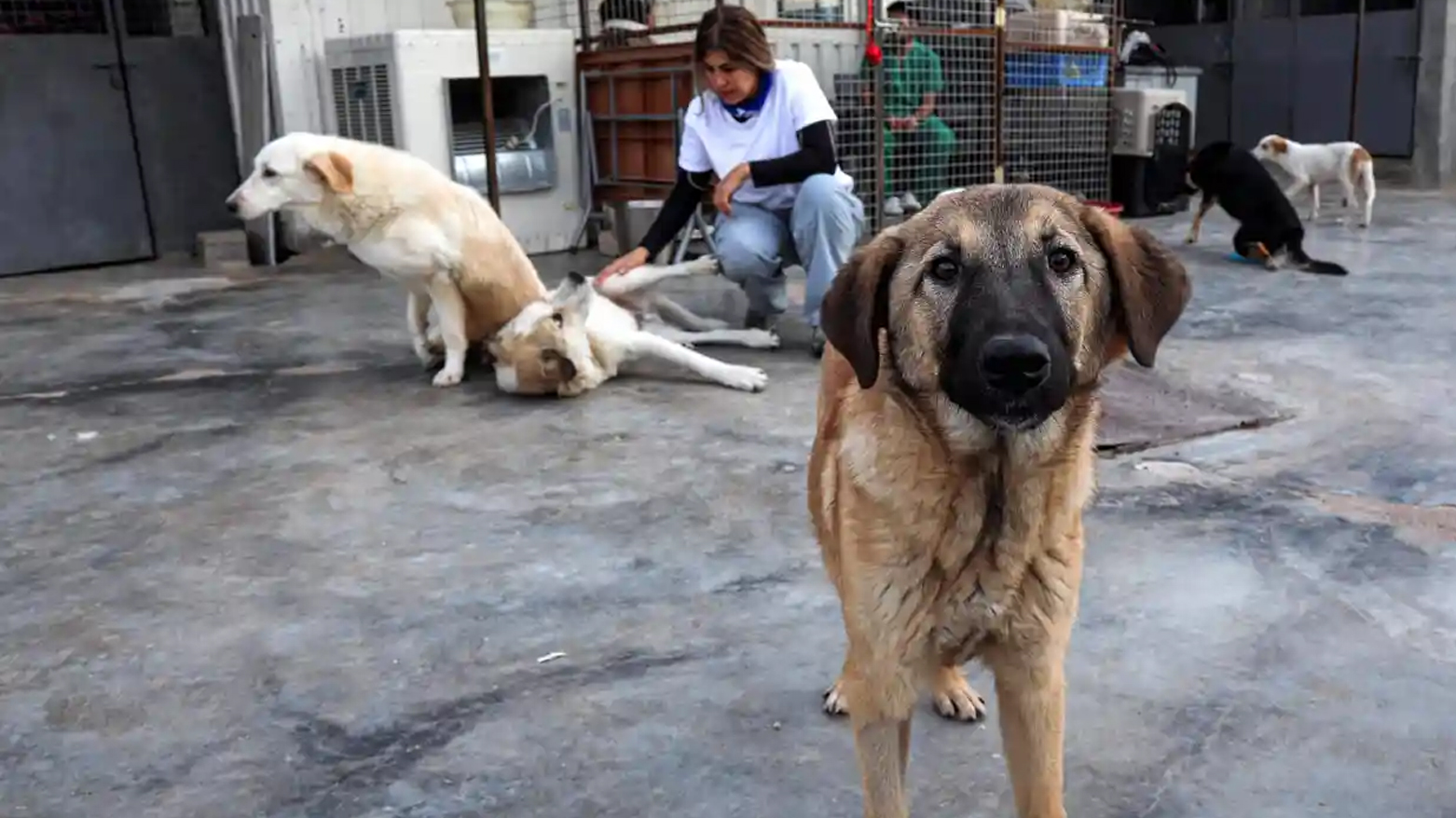Erbil Continues Stray Dog Campaign, Releasing Over 9,000 Neutered Animals
Erbil's campaign to control stray dogs continues, with over 9,000 animals neutered, vaccinated, and released. Since the shelter opened, 18,000 dogs have been collected, with teams now processing 30-40 daily in a sustained humane management effort.

ERBIL (Kurdistan24) – Erbil's municipal teams are continuing a large-scale campaign to manage the city's stray dog population, with over 9,000 animals having now been surgically neutered, vaccinated, and released back into their environment, rendering them no longer a threat to public life.
The ongoing effort, which involves daily collection and shelter operations, represents a significant and sustained humane approach to a long-standing urban challenge.
The media office of the head of Erbil Municipality announced on Sunday that its teams from the Directorate of Service and Environmental Protection have launched an extensive campaign to catch stray dogs. According to the statement, a substantial number of animals are being processed daily.
"Daily, 30 to 40 stray dogs are sent to the shelter. Additionally, by the Erbil Veterinary Directorate, 10 to 15 dogs are vaccinated and neutered," the statement explained. "Afterwards, they are released back into their environment."
This trap-neuter-return (TNR) strategy is a core component of the city's animal welfare and public safety program.
Since the establishment of the dedicated shelter, municipal authorities have collected a total of 18,000 stray dogs from the city. The animals receive comprehensive care at the facility, where staff provide approximately 8 to 10 tons of food daily and conduct ongoing health monitoring.
This campaign is the latest phase in a multi-year effort by Erbil to address its stray dog population through organized and humane methods, a stark contrast to the culling practices that have been reported in other provinces and which have drawn protests from animal welfare advocates.
As reported by Kurdistan24 in January 2025, animal rights organizations gathered in Erbil to protest the killing of stray dogs in Kirkuk and Duhok, calling for the adoption of scientific and ethical management practices.
Erbil’s approach has been held up as a model, with Nabaz Abdulhamid, the mayor of Erbil's central district, stating in May 2024 that while Iraqi law still permits the killing of dogs, "in the Kurdistan Region, we do not follow this practice; instead, we have built shelters to keep the animals away from humans."
The program has seen a steady intensification of efforts over time. In April 2025, Zhyar Jalal, head of Erbil’s Services and Environmental Protection Directorate, told Kurdistan24 that the roundup efforts were significantly increased following incidents involving dog attacks, with teams collecting at least 50 stray dogs daily. By that point, over 15,000 dogs had been taken to the shelter.
Two months later, in June 2025, Hassan Ismail, the director of the shelter, confirmed that collection rates remained high, with over 50 dogs being rounded up each day and more than 7,000 having been successfully operated on and released. At that time, over 17,000 dogs in total had been captured since the program's inception.
The continuous operation has had a measurable impact on public safety. In January 2025, officials reported a significant reduction in dog bite incidents, with the number of cases expected to drop by 47% from 310 in 2023 to 165 in 2024.
The program's capacity has also been bolstered by logistical improvements, such as the addition of new vehicles that tripled the daily collection average from 30 to 90 dogs earlier in the year.
The initiative is set to expand further, with the Erbil provincial budget including a project for a new, modern shelter facility costing 455 million Iraqi dinars, which will be built on 20 acres of land and staffed by multiple veterinary teams.
This sustained and evolving strategy reflects a long-term commitment by Erbil authorities to manage the stray animal population in a manner that prioritizes both public health and animal welfare.
